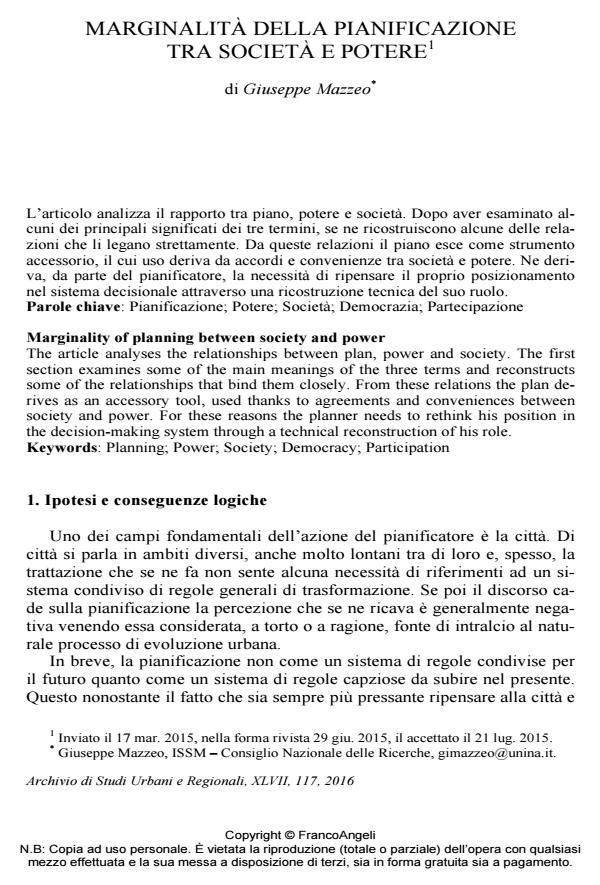Marginality of planning between society and power
Journal title ARCHIVIO DI STUDI URBANI E REGIONALI
Author/s Giuseppe Mazzeo
Publishing Year 2016 Issue 2016/117
Language Italian Pages 22 P. 115-136 File size 140 KB
DOI 10.3280/ASUR2016-117006
DOI is like a bar code for intellectual property: to have more infomation
click here
Below, you can see the article first page
If you want to buy this article in PDF format, you can do it, following the instructions to buy download credits

FrancoAngeli is member of Publishers International Linking Association, Inc (PILA), a not-for-profit association which run the CrossRef service enabling links to and from online scholarly content.
The article analyses the relationships between plan, power and society. The first section examines some of the main meanings of the three terms and reconstructs some of the relationships that bind them closely. From these relations the plan derives as an accessory tool, used thanks to agreements and conveniences between society and power. For these reasons the planner needs to rethink his position in the decision-making system through a technical reconstruction of his role.
Keywords: Planning; Power; Society; Democracy; Participation
Giuseppe Mazzeo, Marginalità della pianificazione tra società e potere in "ARCHIVIO DI STUDI URBANI E REGIONALI" 117/2016, pp 115-136, DOI: 10.3280/ASUR2016-117006